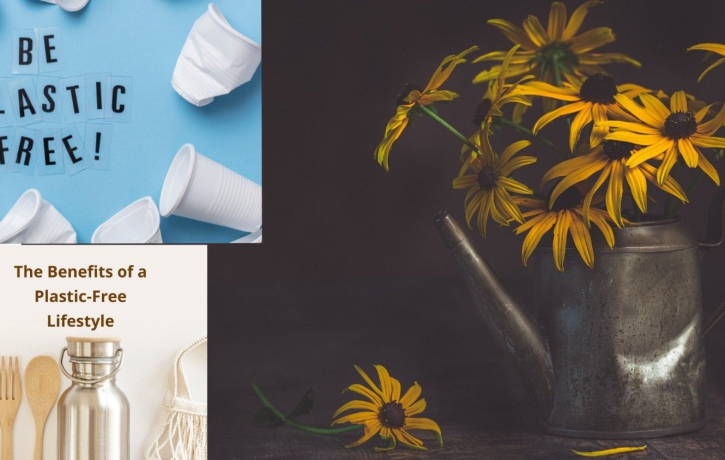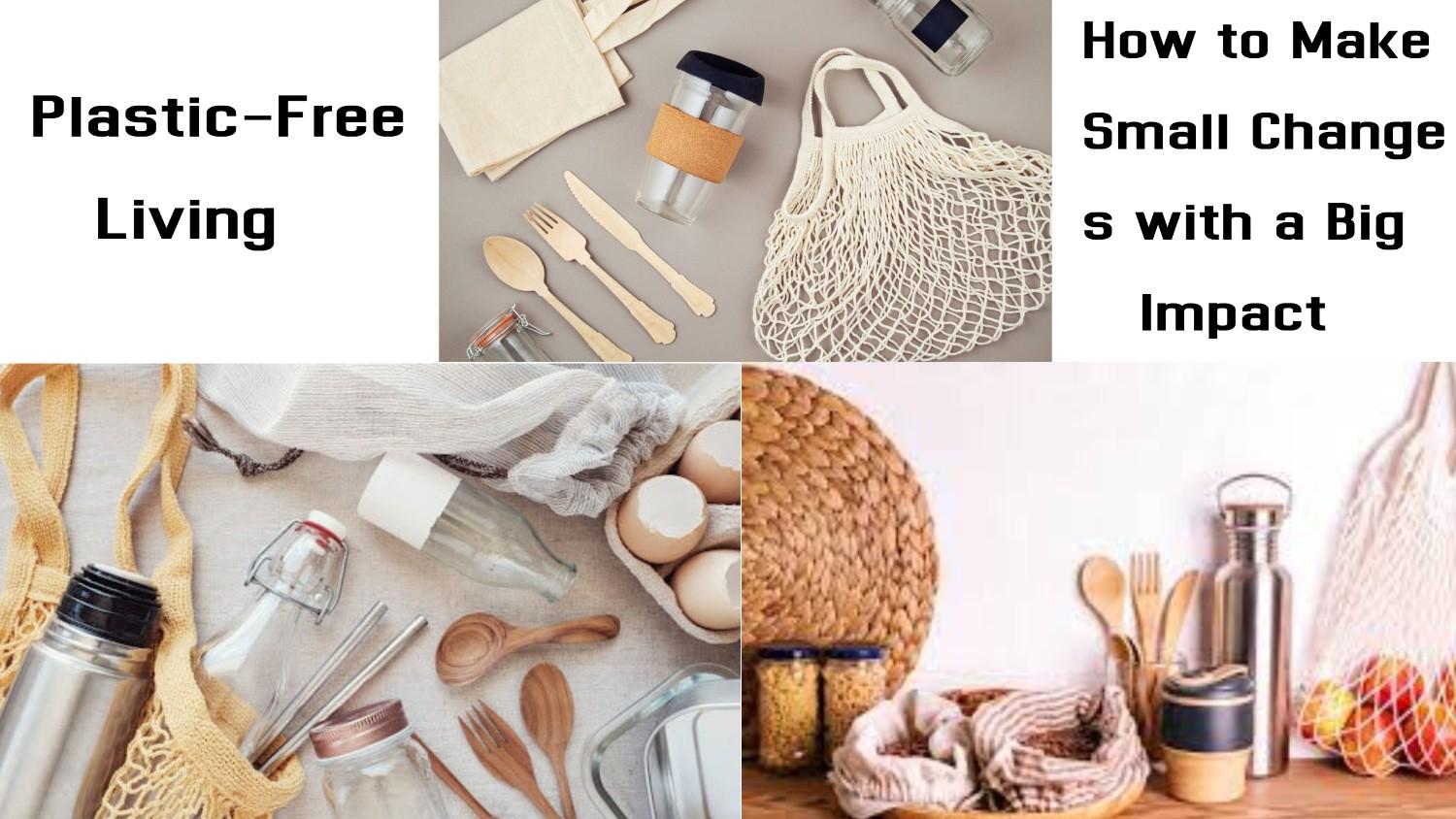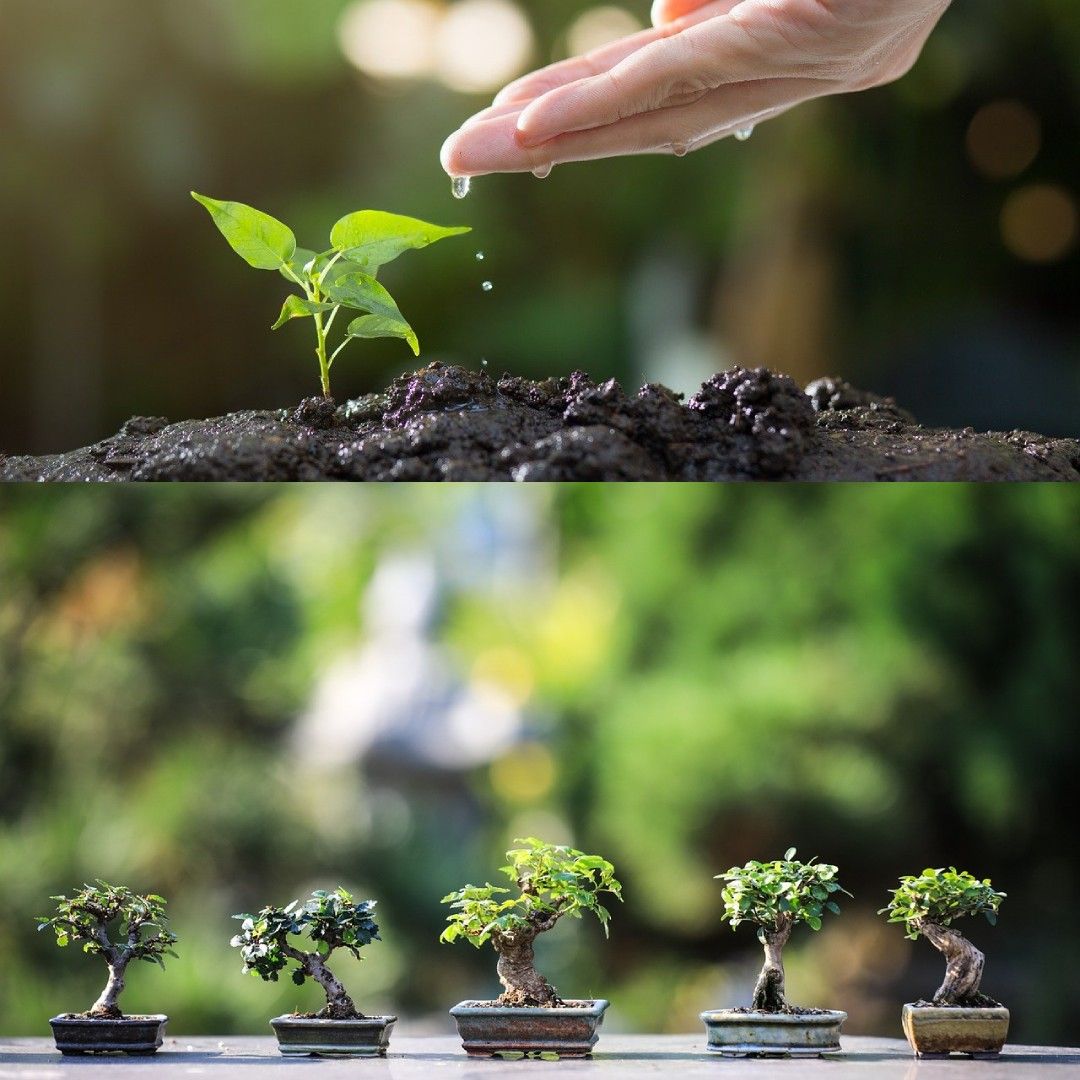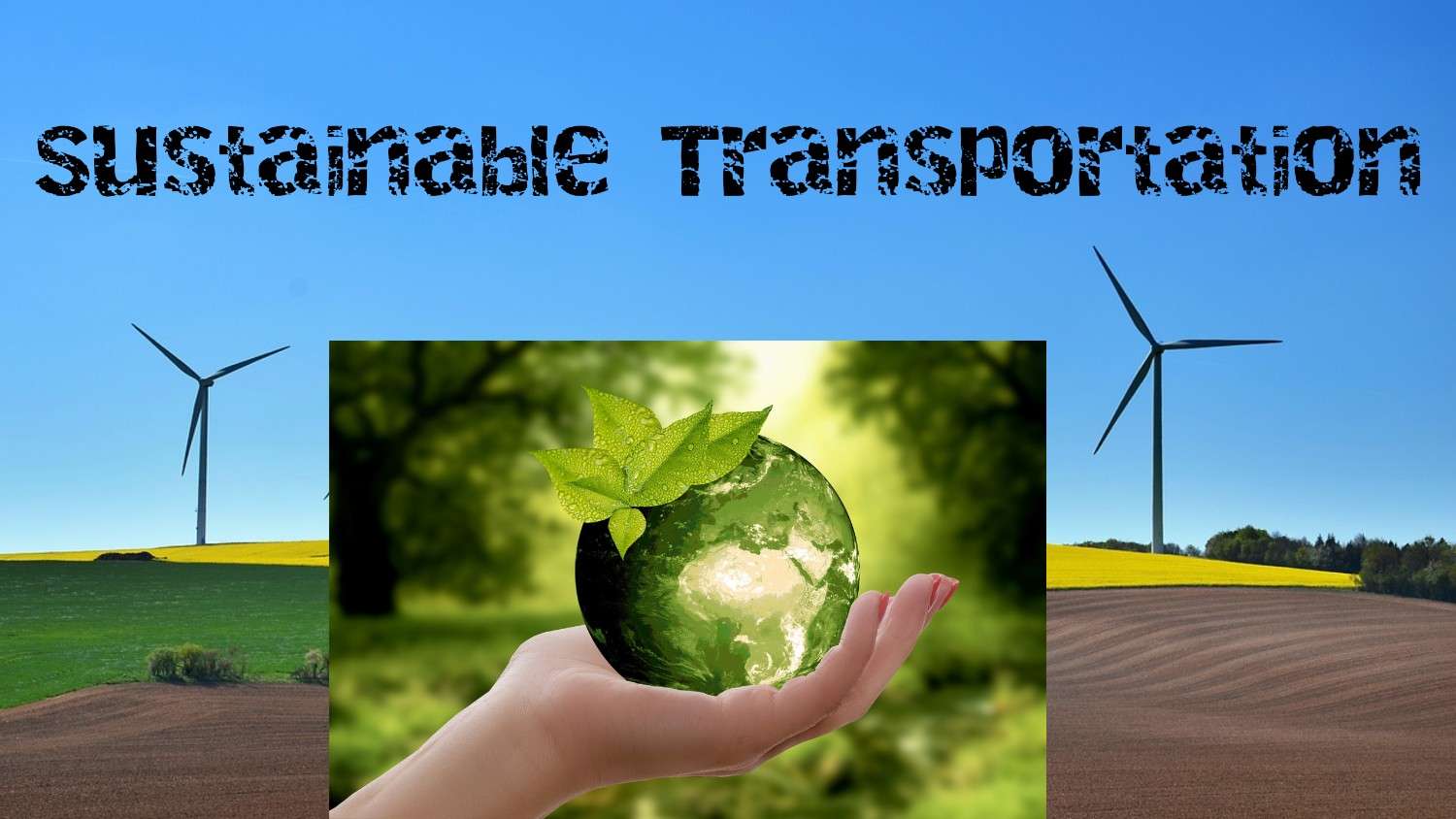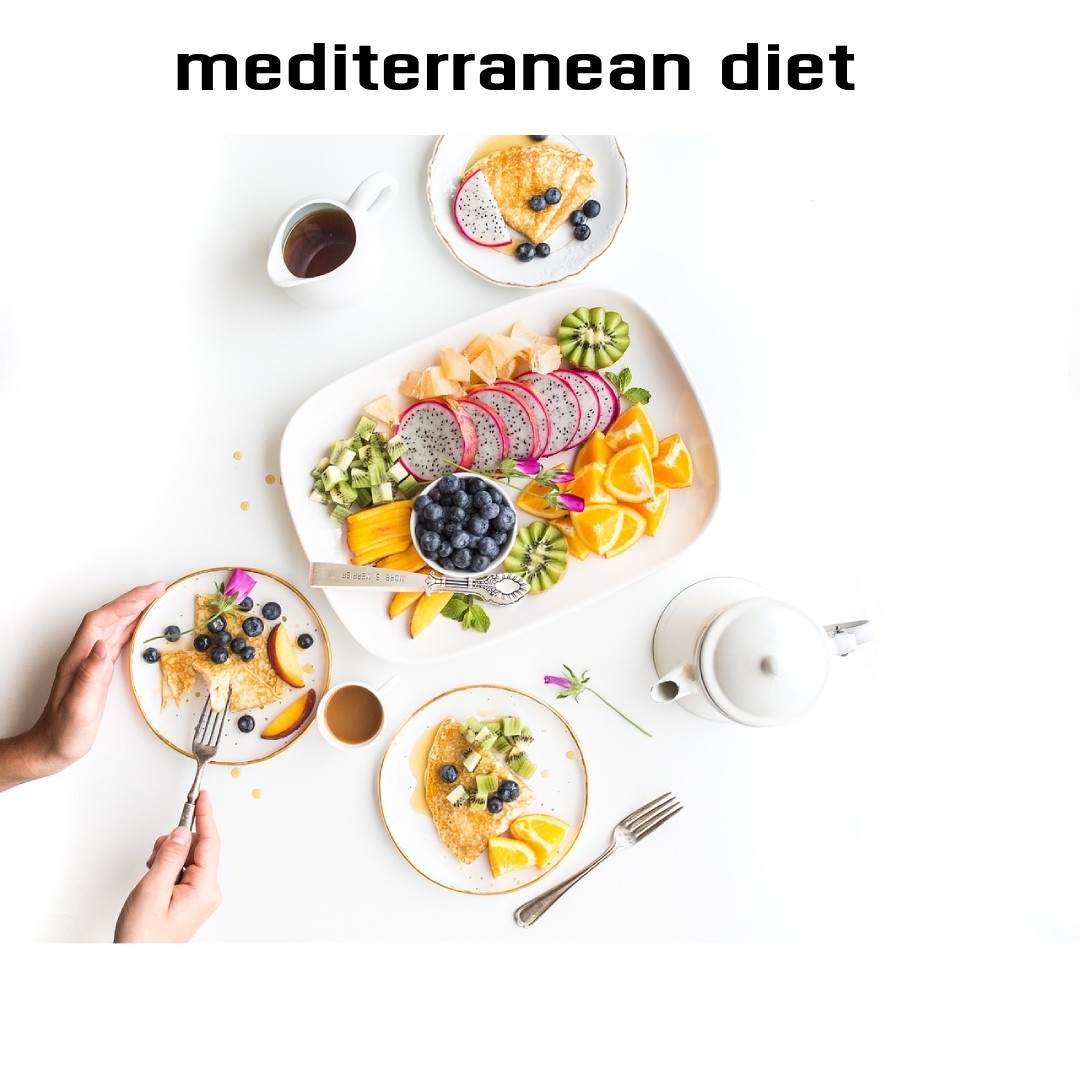- 1
- 2 Introduction
- 3 Know the Importance of Plastic-Free Life
- 4 Here are some steps you can take for plastic Free Living:
- 4.1 Launch with Reusable Bags
- 4.2 Say No to Plastic Straws and Utensils
- 4.3 Go Glass or Metal Water Bottles
- 4.4 Buy in Bulk and Use Your Containers
- 4.5 Choose Personal Care Products which promotes plastic-free living
- 4.6 Keep Away from Single-Use Plastics in the Kitchen
- 4.7 Bring Your Coffee Cup
- 4.8 Be an advocate of companies embracing plastic-free practices
- 4.9 Recycle Properly and Mindfully
- 4.10 Opt for Digital Versions
- 4.11 Participate in cleanups in your community.
- 4.12 Conclusion: Every Small Change Counts
- 5
Introduction
No doubt plastic waste affects the environment in negative ways and having a Plastic-free living is very important for us and for our environment. Plastic litter contaminates our oceans and kills wildlife. There are countless effects of plastic usage. While many are aware of the problems associated with plastic, it still feels quite daunting to go “plastic-free.” On a positive note, however, small changes can have major effects on the planet as well as on your health.
In this article, we’ll discuss simple yet practical tips that will help reduce plastic usage in our daily lives. This is specifically for those who have only recently started their
plastic-free journey or are seeking more tips on how to reduce their plastic footprint. Here are some steps that may contribute positively toward a cleaner and healthier environment.
Know the Importance of Plastic-Free Life
First and foremost, one has to understand why reducing plastic use is paramount. It’s seen that plastic does take hundreds of years to decompose and eventually degrades into microplastics, contaminating sources of water, being harmful to marine life, and even ending up in the human food chain. Just imagine taking one small step toward turning your life plastic-free: you can eventually make the world free of plastic, thus making it healthier for the next generation.
Here are some steps you can take for plastic Free Living:
Launch with Reusable Bags
One of the easiest switch measures is to avoid using single-use plastic bags and to use reusable shopping bags instead. Plastic bags are one of the most widely littered items globally-most ending up either in landfills or ocean waters. Buying a good quality, cloth or jute, or recycled material reusable bag will save you hundreds of plastic bags throughout the years. Carry a few reusable bags on you, such as in the car or purse, and you will never be left unprepared for a spontaneous spree shopping session.
Say No to Plastic Straws and Utensils
Plastic straws and utensils are a big user but also pretty easily replaced. When ordering a drink, request the beverage without a plastic straw; or, when ordering takeout, ask that cutlery be omitted, and instead use your reusable straws and utensils. Brands are sold with affordable plant-based or metal options, including a different reusable straw for every cocktail, or portable utensil sets. This is a little action that can contribute to a reduction in demand for single-use plastics, reducing plastic waste in oceans and landfills.
Go Glass or Metal Water Bottles
Buying a re-useable water bottle is an easy, inexpensive way to reduce plastic waste. Not only are plastic bottles thoroughly wasteful, but they leach heavy metals and other chemicals into your water. Switch over to a glass or stainless-steel bottle, and you’ll find a tough, non-toxic, and environmentally friendly alternative that will keep your water cool and fresh for hours.
Buy in Bulk and Use Your Containers
When it is dry, like grains, nuts, or pasta, shop at stores that offer a bulk option. This way, you avoid all the plastic packaging when you bring your containers to fill a jar or reusable bag directly. Many shops offer you to fill jars or reusable bags directly, saving you money, and thus avoiding waste. Shop in bulk to reduce excess packaging and therefore prevent environmental damage.
Choose Personal Care Products which promotes plastic-free living
Well, personal care products like shampoo, soap, and toothpaste come in plastic packaging. However, many alternatives are available today including shampoo bars, toothpaste tablets, and bar soaps. Plastic-free personal care products reduce waste but also tend to limit exposure to possibly chemical toxins contained in plastic.
Keep Away from Single-Use Plastics in the Kitchen
The kitchen is full of single-use plastics, starting from wrap to plastic sandwich bags. Instead, they can be substituted with more sustainable alternatives such as beeswax wraps, silicone food storage bags, and glass containers. Beeswax wraps are reusable and biodegradable, while silicone bags are tough and easy to clean, which makes them superb alternatives to plastic.
Bring Your Coffee Cup
If you are a coffee lover, make it a habit to carry a reusable coffee cup with you. Many stores offer discounts to customers who bring their cups. Some even reward those who bring in their cups, so check that out too. Reusable cups are stainless steel or glass-made, making them just as great if not more fantastic for enjoying your favorite drinks on the go but non-plastic-friendly.
Be an advocate of companies embracing plastic-free practices
Yet, buying from sustainable packaging or plastic-free brands does make a difference. More and more companies now shift towards biodegradable, recyclable, or reusable packaging to ensure lesser negative impacts on the environment. Buying these reduces your plastic usage as well as encourages businesses to be more sustainable.
Recycle Properly and Mindfully
As great as it would be to stop using plastics in the first place, recycling what you use is just as important. Clear your schedule to learn about how to recycle according to your local guidelines, as they tend to differ significantly. Collect and clean your recyclables well so that as many items as possible may be recycled and reused. Never engage in “wish-cycling,” or putting things you think should be recycled into the bins; it delays the recycling process and can contaminate.
Opt for Digital Versions
Plastic wrap for much of what you buy daily products like magazines, books, and greeting cards-are not there unless wrapped in plastic. Where feasible, look for digital versions. For example, e-books and digital subscriptions cut down on the manufacturing and packaging of physical products. Digital greetings and e-cards are a nice way to get in touch with others without producing plastic.
Participate in cleanups in your community.
Plastic pollution is one of the easiest things you can see when joining any local cleanup effort. Community cleanups help remove plastic waste from the environment, and prevent it from polluting waterways, and killing wildlife. Attending these events can inspire you to live more sustainably in your daily life and be able to ask for a change in your community.
Conclusion: Every Small Change Counts
Transitioning to a plastic-free living does not have to be overwhelming. Smaller, intentional adjustments can significantly reduce the plastic footprint and do much good for the environment. From reusable bags and bottles to selecting personal care products with little or no plastic packaging, it all counts toward progress toward that more sustainable future.
And what is needed today is a massive overhaul of the planet because plastics are increasingly causing it to rot away. Everyone, then, has a part to play in this. Upon beginning to observe such lifestyles and practices, you might soon realize that living with less plastic is not only good for the planet but also a reward for you. Remember, it is the little consistent efforts toward changing our environment that show a big impact.

